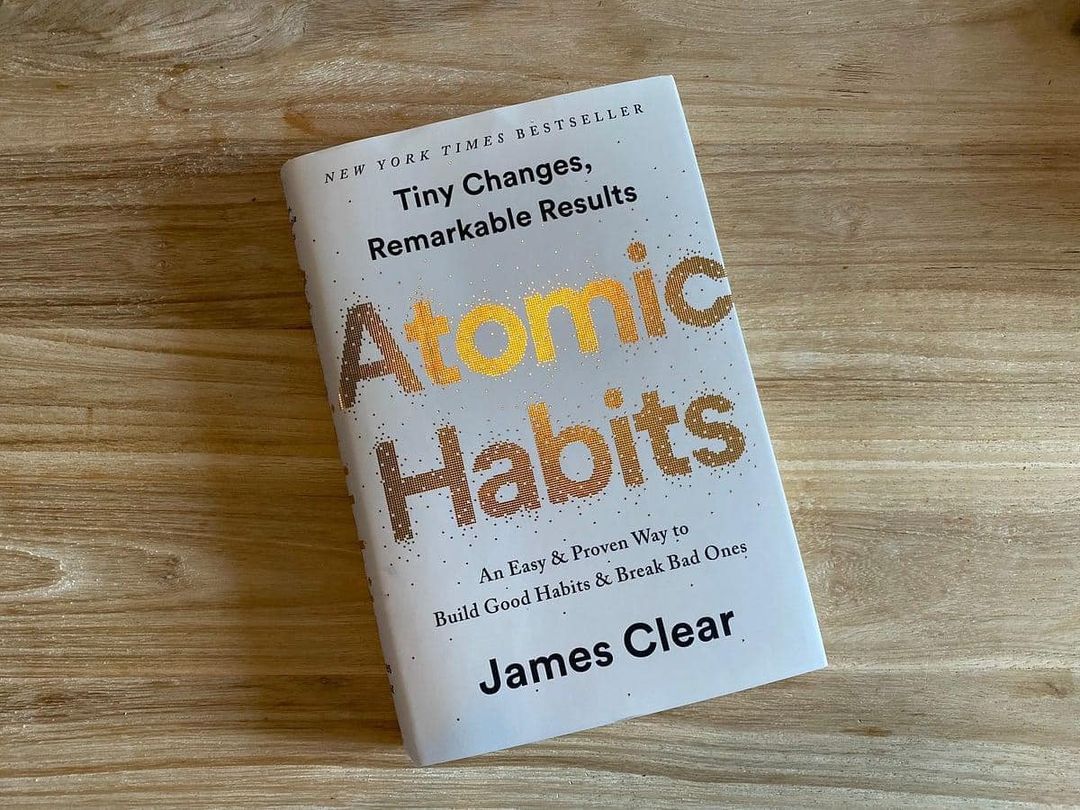In his book “Atomic Habits,” James Clear provides a practical framework for understanding and changing our habits. He argues that small, incremental changes can have a profound impact on our lives over time.
Here are ten lessons from the book:
- The power of small habits. Clear emphasizes the importance of focusing on small, incremental changes in our habits. These tiny habits, when consistently practiced, can have a profound impact on our lives over time.
- Make habits obvious. Clear suggests that we should make our desired habits more obvious and visible in our environment. By having visual cues and reminders, we are more likely to engage in those habits.
- Create an environment for success. Building on the previous point, Clear advises that we design our physical and social environment in a way that supports our desired habits and eliminates distractions or temptations that hinder them.
- The role of identity. Clear emphasizes the significance of adopting an identity that aligns with the habits we want to develop. By seeing ourselves as the type of person who embodies those habits, we are more likely to follow through with them.
- Habit stacking. This technique involves linking a new habit with an existing one. By stacking the new habit on top of an established one, we increase the chances of its successful integration into our routine.
- The importance of tracking. Clear highlights the value of tracking our habits. By keeping a record of our progress, we gain insight into our behavior patterns and can make adjustments as needed.
- Focus on consistency. Consistency is key when it comes to habit formation. Clear suggests that we prioritize showing up and practicing our habits regularly, even if it’s in small increments. Consistency builds momentum and reinforces the habit loop.
- Embrace the power of habit stacking. Clear recommends incorporating a “habit stack” into our routines. By pairing a habit we want to establish with an activity we already do consistently, we can piggyback on the existing behavior and make it easier to adopt the new habit.
- Overcome the plateau of latent potential. Clear explains that progress in habit formation is often slow and uneven. We may not see immediate results, but small improvements are still meaningful. By persisting through the plateau of latent potential, we can break through to new levels of success.
- Reframe failure as feedback. Instead of viewing failure as a setback, Clear suggests reframing it as feedback. By learning from our mistakes and analyzing what went wrong, we can make adjustments and continue moving forward in our habit-building journey.
These lessons from “Atomic Habits” provide practical strategies and insights to help individuals create positive and lasting changes in their lives by focusing on the power of small, consistent habits.
How to Apply These Lessons in Your Own Life
Here are some tips on how to apply these lessons in your own life:
- Start small. Don’t try to change too much at once. Start with one small habit that you can realistically commit to.
- Make it obvious. Put visual cues in your environment to remind you of your desired habits. For example, put a water bottle on your desk to remind you to drink water throughout the day.
- Create an environment for success. Eliminate distractions and temptations from your environment. For example, if you want to start working out more, put your workout clothes out the night before so you’re more likely to get started in the morning.
- See yourself as the type of person who embodies your desired habits. This will help you stay motivated and on track. For example, if you want to be a more organized person, start telling yourself that you’re the type of person who is always organized.
- Use habit stacking. Link a new habit with an existing one that you already do consistently. For example, if you want to start reading more, start by reading for 10 minutes before bed each night.
- Track your progress. This will help you stay motivated and see how far you’ve come. You can use a habit tracker app or simply keep a journal of your progress.
- Focus on consistency. Even if you can only commit to a small amount of time each day, consistency is key. The more you practice your habits, the easier they will become.
- Don’t give up. Everyone slips up sometimes. The important thing is to pick yourself up and keep going.
By following these tips, you can start to create positive and lasting changes in your life by focusing on the power of small, consistent habits.














